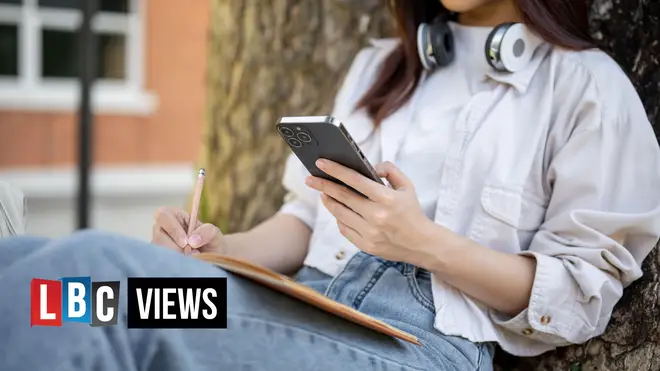
Clive Bull 1am - 4am
19 February 2024, 08:25 | Updated: 19 February 2024, 08:27

The government has announced a crackdown on mobile phones in schools - it’s a sensible idea, but it won’t be achieved through this policy.
I entered secondary school just as mobile phones became widespread. My first phone was given to me as I started year 7.
At first, I would never dream of bringing my Nokia brick to school. But as I got older, it found its way into my school blazer more often.
I checked my social media at lunchtime and snuck to the toilet to text a friend at another school.
Phones were banned in my school - but the rule wasn’t properly enforced.
It's now 15 years later and the problem persists. One teacher tells me that they spotted a student using their phone under the desk last week - worryingly using ChatGPT to cheat in an exam.
That’s why the government is right to tackle this problem. Today’s announcement from Education Secretary Gillian Keegan promises a ‘crackdown’ on mobile phones, to ‘minimise disruption and improve behaviour in classrooms’.
I suspect that most people agree in principle. Teachers are fed up with having to police this problem, parents worry about their child’s screen time and even the United Nations has called for smartphones to be banned in schools.
Ofcom estimates that 97% of over-12s have their own phone. Children of this age need one - it’s got their train tickets and bank cards on it. Teens need to be able to contact their parents.
It’s too late to re-design the smartphone to make it more teen-friendly, but we’ve still got time to solve the problem in schools.
The Association of School and College Leaders has responded to the government announcement by calling it a ‘non-policy for a non-problem’. Yes, the policy needs to be improved, but it’s not fair to call it a non-problem.
There’s many reasons that an enforced ban is required - screens are distracting, teenage minds are obsessed with TikTok and cyberbullying remains a problem.
The government’s policy comes with a £10 million investment in ‘Behaviour Hubs’, which will only support 700 schools. There’s over 24,000 schools in the England, 3,000 of which are secondary. This money won’t touch the sides.
A focus on behaviour is needed, but what about the infrastructure needed to enforce a phone ban?
If a ban is to work, you can’t just ask 1,000 students to hand in their phone to the school receptionist. You need a high-level mobile phone locker, which can only be unlocked by teachers. These don’t come cheap.
We live in a 24/7 online world now - spending hours on our smartphones every day. Much like in office jobs, students are given schoolwork to complete on Microsoft Teams, which they access through their devices.
Phones are used by almost every school child, something which rocketed during the pandemic. In this post-Covid world, it just feels impossible to put the genie back in the bottle.
Gillian Keegan was asked by Nick Ferrari on LBC this month to rate the government using a one-word Ofsted rating. She responded by saying ‘good’, noticeably not ‘outstanding’.
I’d tell the Education Secretary that this policy to ban smartphones in schools is well-meaning, but it ‘requires improvement’.
LBC Views provides a platform for diverse opinions on current affairs and matters of public interest. The views expressed are those of the authors and do not necessarily reflect the official LBC position. To contact us email views@lbc.co.uk